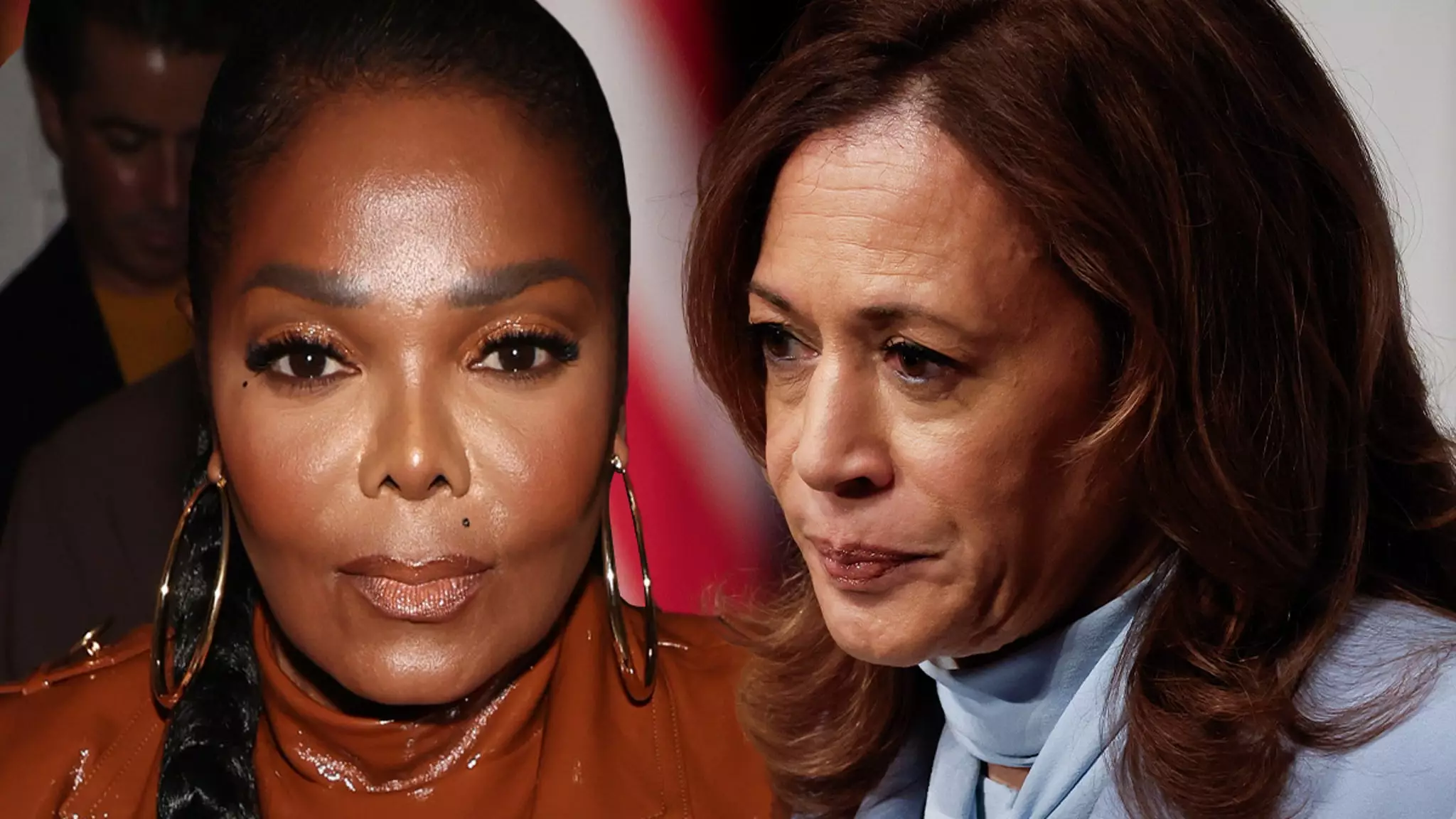In an era where social media can propel opinions into the global spotlight within seconds, the voices of celebrities require scrutiny. Notably, Janet Jackson recently made headlines for echoing controversial claims regarding Vice President Kamala Harris’ racial identity during an interview with The Guardian. Jackson’s comments raise urgent questions about the spread of misinformation and the responsibilities that come with public influence.
During the conversation, Jackson appeared to reference assertions previously made by Donald Trump, implying that Harris, who is of Jamaican and Indian descent, might not genuinely identify as Black. Instead, Jackson speculated that Kamala’s identity was more reflective of her Indian heritage, a sentiment that Trump had previously expressed in a rather problematic manner at the National Association of Black Journalists Annual Convention. In misattributing Harris’ racial identity, Jackson not only distorts Harris’ heritage but also stokes divisive narratives surrounding race and identity in the United States.
The controversy surrounding Harris’ racial identity is emblematic of broader issues within identity politics. Jackson’s assertion that Harris’ father is “white,” does a disservice to the complexity of racial identity, particularly in a society accustomed to simplifying individuals into singular narratives based on race or ethnicity. By perpetuating Trump’s questionable claims, Jackson risks reinforcing racial stereotypes and misconceptions, which can significantly sway public opinion.
It’s critical to acknowledge the multitude of factors that contribute to an individual’s identity; Harris herself identifies as Black and has consistently engaged with both her African American and Indian heritage throughout her career. The ease with which public figures can disengage from this nuanced conversation is troubling, especially considering their audience’s potential impressionability.
Moreover, Jackson’s comments reflect a troublesome pattern of misinformation in political discourse. The idea of Harris “turning Black for political gain,” as suggested by Trump, not only lacks factual basis but also undermines the authentic experiences of Black individuals navigating complex societal structures. The ramifications of such statements extend beyond mere gossip; they affect public trust in political figures and can deepen societal divides.
As the election season approaches, the implications of Jackson’s comments highlight the importance of responsible communication. Public figures, whether in the entertainment industry or politics, possess the power to shape narratives and influence widespread perceptions. A commitment to veracity should be paramount, especially when discussing sensitive topics like race and identity.
As the political landscape becomes more contentious, discussions about race and identity must be approached with a deeper understanding and respect for the lived experiences of individuals. Janet Jackson’s recent remarks serve as a cautionary tale of how misinformation can perpetuate harmful narratives. Moving forward, it is crucial for public figures to engage in authentic dialogues that elevate understanding rather than division, allowing society to progress through a lens of inclusivity and appreciation for diversity.

Leave a Reply